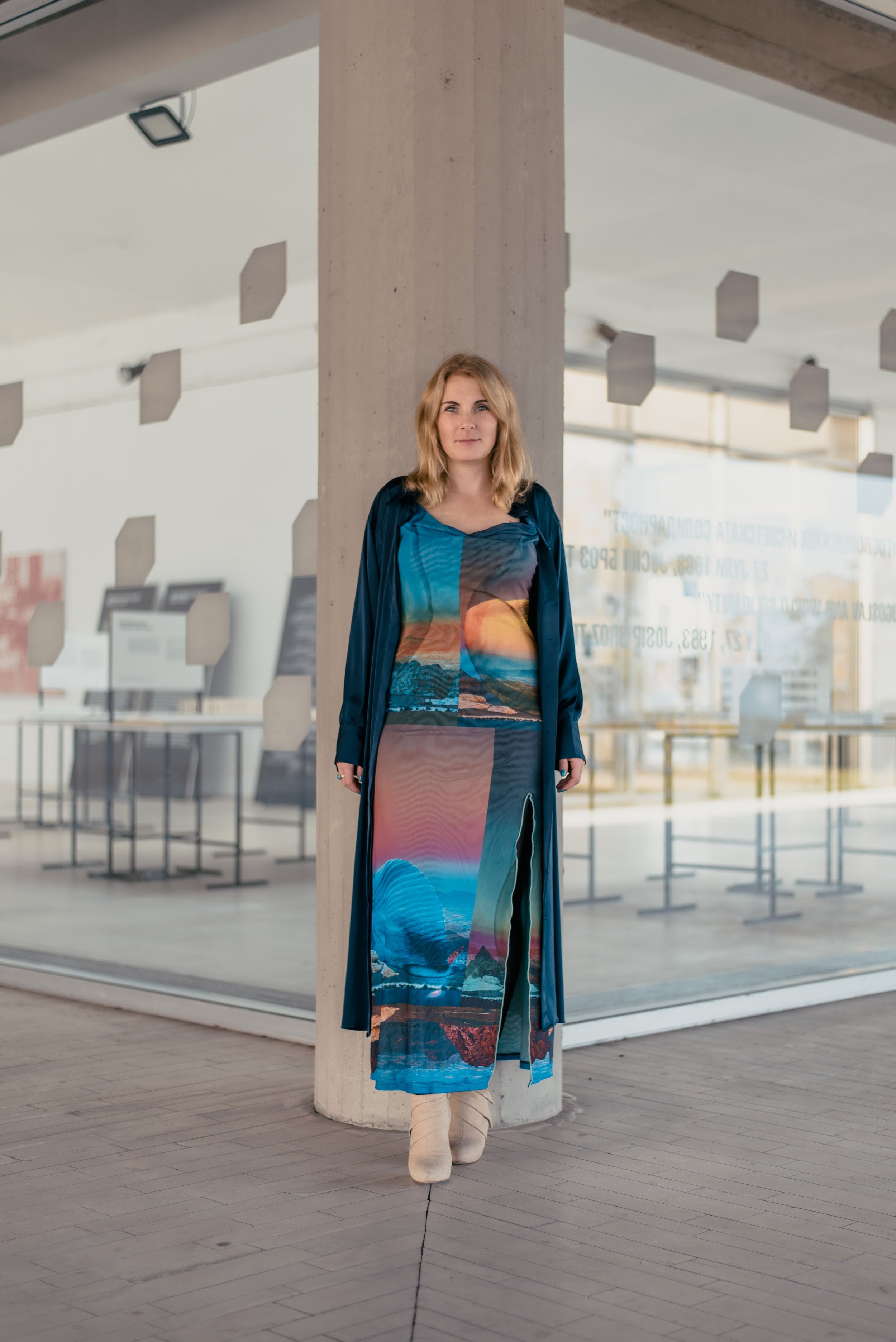Aleksandra Shekutkovska is an architect, urban designer, mentor and author currently working as a Project manager in Bremen. In her current role she manages and coordinates projects in the urban redevelopment areas of Bremen Kattenturm and Blumenthal. She organizes and coordinates collaborations between various stakeholders, including municipal authorities, specialist planners, architects, energy consultants, and citizen participation by providing expert advice in the field of sustainable urban design.
She has been working 15 years across disciplines and on different scales of projects both in academia and architecture offices in Macedonia, Brazil, Switzerland, Thailand and Germany.
In 2009 she graduated as an Dipl.Ing. Architect at the Faculty of Architecture in Skopje, North Macedonia. In September 2012 she finished the Advanced studies in Urban design at ETH Zurich working on projects for Rio and Sao Paulo where she was part of the team working on the book “Cidade de Deus, Working with informalized mass housing”.
Between 2015 and 2016 she worked at the Urban Design and Development program at Thammasat University in Bangkok, Thailand. There she was co-lecturer and advisor in: Architectural Graphics and Presentation, Reading and Representing Places, Design thinking, Design Communication, Urban Design Fundamental, Theory and Concept in Urban Design, Urban Intervention and Infill Development. During this time she was conducting the research Flowscape Politics of spatial production focusing on the BTS Skytrain of Bangkok, part of the MAPS Mastering of Public space exhibition.
After starting a new chapter in Germany she enhanced her skills as an architect and urban designer in different offices: Magnus Kamminiarz, Menges Scheffler and Schluppkotten Architekten.
In 2019 she joined the Institute for Sustainable Architecture where she has was teaching until Summer 2022 in the following studios and projects:
Winter semester 2021/2022:
Master Thesis: Trilogie für Dortmund
Urban Design Project Studio: WOB on track
Stegreif: City for children
Summer semester 2021:
Master Entwurf Studio: Urban Lab Weststadt, Braunschweig
Bachelor Thesis Studio: Urban Lab Weststadt, Braunschweig
Summer Workshop Let’s walk...and talk (Organisation)
Winter semester 2021/2020:
Urban Design Project Studio: Open Campus, Braunschweig
Bachelor Thesis Studio: Creative Campus, Braunschweig
Individual Master Thesis: Reviving Weststadt, Braunschweig
Sommersemester 2020:
Seminar: Urban Disaster Studio
Master Entwurf Studio: World = City = Vision
Individuelle Master Thesis: Laoshan district renewal, China
Compact Design project: Competition Tactical urbanism, Braunschweig
Summer Workshop Vitapolis (Organisation)
Stegreif: Mapping post-Pandemie micro-geographies
Winter semester 2019/2020:
Urban Design Project Studio: World = City = Needs Vision
Compact Design project: Competition Maré Cidade, Rio de Janeiro
Making City (Organisation)
Stegreif: Future City
Aleksandra is founder of Laser Cut Design Laboratory and Koncept mama.
She is the author of three books: “Koncept Mama - Modern manual for pregnancy, birth and postpartum and holistically building self confidence”, “Koncept Mama diary” and recently “Confetti - manual for collaborative drawing with children age 5-10”.

